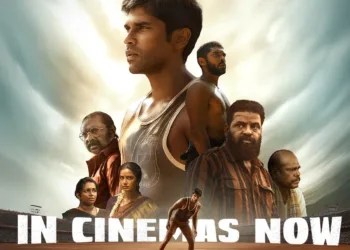In a rare moment of cinematic introspection, Quentin Tarantino has finally answered the question that has plagued film enthusiasts for decades: which of his own movies does the legendary director consider his best? During an expansive interview on “The Church of Tarantino” podcast, the two-time Oscar winner delivered surprising revelations about his filmography, declaring Inglourious Basterds his “masterpiece” while naming Once Upon a Time in Hollywood as his personal favorite. Perhaps most intriguingly, Quentin Tarantino described Kill Bill as “the movie I was born to make,” offering unprecedented insight into his creative psyche and artistic evolution.
Table of Contents
Quentin Tarantino’s Definitive Film Rankings
Quentin Tarantino’s candid assessment of his own work provides a fascinating glimpse into the mind of one of cinema’s most distinctive auteurs. “‘Once Upon a Time in Hollywood’ is my favorite, ‘Inglourious Basterds‘ is my best,” Tarantino revealed. “But I think ‘Kill Bill’ is the ultimate Quentin movie, like nobody else could’ve made it.”

The director’s explanation for choosing Kill Bill as his most quintessential work was particularly revealing. “Every aspect about it is so particularly ripped, like with tentacles and bloody tissue, from my imagination and my id and my loves and my passion and my obsession,” he explained. “So I think ‘Kill Bill’ is the movie I was born to make, I think ‘Inglourious Basterds’ is my masterpiece, but ‘Once Upon a Time in Hollywood’ is my favorite.”
The Significance of Inglourious Basterds as Tarantino’s Masterpiece
Quentin Tarantino’s designation of Inglourious Basterds as his masterpiece carries particular weight given the film’s unique position in his career. The 2009 World War II alternative history film represented a culmination of Tarantino’s storytelling abilities, combining his signature dialogue with historical revisionism and ensemble filmmaking.
The choice seems especially significant considering the film’s meta-textual elements. At the end of the film, when Brad Pitt’s Lt. Aldo Raine says, “I think this just might be my masterpiece,” it’s more than just a line about the swastika he’s about to carve into Hans Landa’s forehead. Knowing Tarantino, it’s also cheekily self-referential: the line winks at the audience, suggesting that Inglourious Basterds might truly be the director’s “masterpiece.”
The film’s critical recognition supports Tarantino’s assessment, as Inglourious Basterds finished #14 on The New York Times’ list of the 100 Best Films of the 21st Century, ranking higher than any other Tarantino film on the prestigious list.
Screenplay Excellence and Directorial Mastery
Beyond his feature films, Quentin Tarantino also evaluated his screenwriting and directorial achievements. “I think ‘Inglourious Basterds’ is my best script, and I think ‘Hateful Eight’ and ‘Once Upon a Time In Hollywood’ are right behind,” he explained.

Interestingly, when it comes to pure directorial craft, Tarantino singled out The Hateful Eight for special recognition. “There’s an aspect of ‘Hateful Eight’ that I actually think is probably my best directing of my material, i.e., the material is written and it’s solid. So it’s not like I have to create it, like ‘Kill Bill,’ it’s solid, it’s right there and I actually think it’s my best servicing [of] my material as a director.”
The Road to His Final Film
Quentin Tarantino’s reflections on his filmography come at a crucial juncture in his career, as he continues developing his promised tenth and final film. The director recently scrapped his long-rumored project The Movie Critic, citing concerns about creative repetition.
“I wasn’t really excited about dramatizing what I wrote when I was in pre-production, partly because I’m using the skillset that I learned from ‘Once Upon a Time in Hollywood,'” he explained. “It was something we had to pull off. We had to achieve it. It wasn’t for sure that we could do it. … ‘The Movie Critic,’ there was nothing to figure out. I already kind of knew, more or less, how to turn L.A. into an older time. It was too much like the last one.”
Tarantino’s Film Rankings Breakdown
| Category | Film | Reasoning |
|---|---|---|
| Masterpiece/Best | Inglourious Basterds | Technical and artistic peak achievement |
| Personal Favorite | Once Upon a Time in Hollywood | Emotional connection and satisfaction |
| Most Quintessential | Kill Bill | Pure expression of artistic vision |
| Best Directing | The Hateful Eight | Superior material execution |
| Best Screenplay | Inglourious Basterds | Writing excellence and complexity |
Critical Reception and Box Office Performance
| Film | Year | Rotten Tomatoes | Box Office (Worldwide) | Awards |
|---|---|---|---|---|
| Inglourious Basterds | 2009 | 89% | $321.5 million | 8 Oscar nominations |
| Once Upon a Time in Hollywood | 2019 | 85% | $374.3 million | 10 Oscar nominations |
| Kill Bill Vol. 1 | 2003 | 85% | $180.9 million | 1 Oscar nomination |
| Kill Bill Vol. 2 | 2004 | 84% | $152.2 million | Critical acclaim |
| The Hateful Eight | 2015 | 74% | $155.8 million | 3 Oscar nominations |
Declining the Once Upon a Time Sequel
Despite his obvious affection for Once Upon a Time in Hollywood, Quentin Tarantino made the surprising decision to pass on directing its sequel, The Adventures of Cliff Booth, which will instead be helmed by David Fincher for Netflix.

“I love this script, but I’m still walking down the same ground I’ve already walked,” Tarantino explained. “It just kind of unenthused me. This last movie, I’ve got to not know what I’m doing again. I’ve got to be in uncharted territory.”
This decision reflects Quentin Tarantino’s commitment to challenging himself artistically, even when it means stepping away from commercially viable projects.
Legacy and Impact on Cinema
Quentin Tarantino’s self-assessment offers valuable insight into how one of cinema’s most influential directors views his own contributions to the medium. His ability to differentiate between technical achievement (Inglourious Basterds), personal satisfaction (Once Upon a Time in Hollywood), and pure artistic expression (Kill Bill) demonstrates a sophisticated understanding of his own creative process.
The director’s honesty about his preferences and critical evaluation of his work provides film scholars and enthusiasts with unprecedented access to his artistic philosophy. As Quentin Tarantino approaches his final film, these reflections serve as both a career retrospective and a roadmap for understanding his creative priorities.

With a filmography spanning over three decades and including cultural touchstones like Pulp Fiction, Reservoir Dogs, Django Unchained, and Jackie Brown, Quentin Tarantino’s legacy in cinema is secure. His recent comments provide a master class in artistic self-reflection and offer fans a deeper appreciation for the complexity and intentionality behind his filmmaking choices.
As the legendary director continues working toward his tenth and final film, his insights into his own masterworks remind us why Quentin Tarantino remains one of cinema’s most compelling and uncompromising voices.
Read More: Noah Centineo Set to Cast as Young Rambo in Prequel Movie ‘John Rambo’
FAQs
What does Quentin Tarantino consider his best film?
Quentin Tarantino considers “Inglourious Basterds” his best film and personal masterpiece, though he notes that “Once Upon a Time in Hollywood” is his personal favorite and “Kill Bill” is the most quintessentially “Tarantino” movie.
Why did Tarantino call Kill Bill the movie he was “born to make”?
Tarantino described “Kill Bill” as being “ripped, like with tentacles and bloody tissue, from my imagination and my id and my loves and my passion and my obsession,” making it the ultimate expression of his artistic vision that no one else could have created.
Will Quentin Tarantino direct the Once Upon a Time in Hollywood sequel?
No, despite it being his favorite film, Tarantino passed on directing “The Adventures of Cliff Booth” sequel, which will instead be directed by David Fincher for Netflix. Tarantino felt it would be too similar to his previous work.
What happened to Tarantino’s planned film “The Movie Critic”?
Tarantino scrapped “The Movie Critic” because he felt it was too similar to “Once Upon a Time in Hollywood” and didn’t offer enough creative challenges, stating he needed to be “in uncharted territory” for his final film.
Which Tarantino film does he consider his best screenplay?
Tarantino considers “Inglourious Basterds” his best screenplay, followed closely by “The Hateful Eight” and “Once Upon a Time in Hollywood.” He also noted that “The Hateful Eight” represents his best directing of solid written material.








